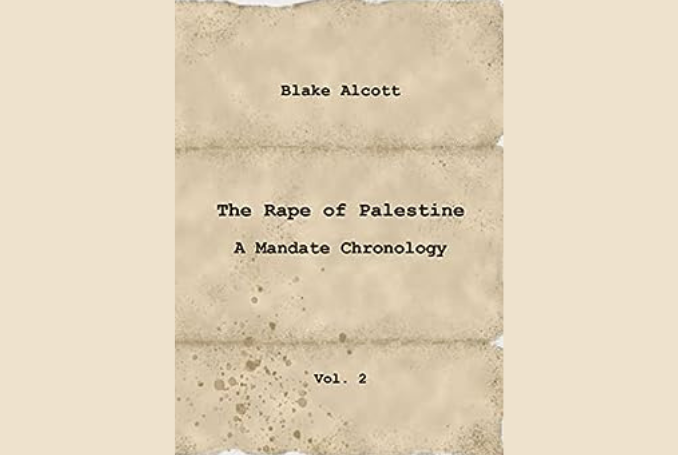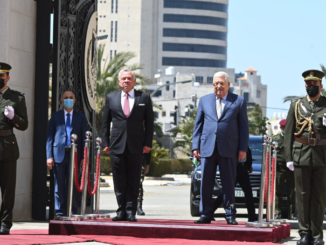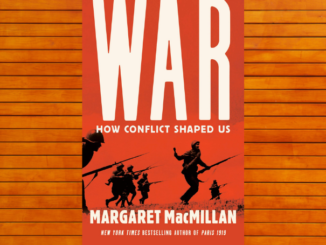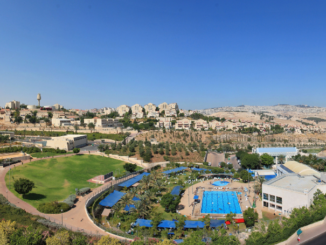
By Jeremy Salt
(Blake Alcott, The Rape of Palestine. A Mandate Chronology. 2 vols., Tredition.com.)
A monumental amount of work has gone into the preparation of these two volumes, 1437 pages, excluding annexes, not just of documents but sharp analysis and commentary.
There are few works on Palestine of such scope. All the standard documents are here and analyzed anew but there are innumerable gems dug up by the author that the researcher will not have known about or has forgotten.
The commissions of inquiry of the 1930s are worked over every time a study of mandatory Palestine appears, but who knows now of the Palin Court of Inquiry of July 1920, which found that the cause of recent riots in and around Jerusalem was not race or religion but British support for Zionism and zionist “indiscretion and aggression” since Balfour issued his declaration?
The truth was so unpalatable that the report was suppressed at the specific request of the first High Commissioner of mandatory/occupied Palestine, Herbert Samuel, a Zionist, but with the support of the home government. It was not made public until 1968.
Another gem is the secret note exposed by a British newspaper in the 1970s, confirming that in the exchanges between Sharif Husayn and Sir Henry McMahon in 1915/16, Palestine was to be included in the territory promised for Arab independence, not, as the British tried to argue for a long time afterward, to be excluded because of rival French claims.
Alcott begins his chronology with a letter written in 1899 by Yusuf Dia al Khalidi, the mayor of Jerusalem, to Zadoc Kahn, the chief rabbi of France. In the abstract he did not object to Zionism as a means of solving the ‘Jewih problem’ but in practice – in reality – as Palestine was populated by non-Jews the only way to take it would be by cannons and warships.
“By what right do the Jews want it for themselves?” he asked. Nearly 125 years later, the question without a credible answer is still being asked by the Palestinians.
The documents make it clear that from the beginning of settlement, the Palestinians knew what the zionists were up to. They were not taken in by the false assurances made by the settler leaders. This did not mean that they were not prepared to talk to them. They had always made it clear that individual Jews were welcome and would have the same rights as anyone else, but only in an Arab state.
On July 7, 1914, Al Karmil published a ‘general summons’ on the zionist danger, asking its readers: “Do you want to be slaves to the zionists, who have come to kick you out of their country, claiming it is theirs?”
British Imperialism
The zionists rode into Palestine on the back of British imperialism. The British armed them and protected them at all levels. They filled senior positions in the occupying administration with zionists. It was not just Palestine they wanted. Norman Bentwich, appointed as ‘Attorney General,’ believed that “Jewish civilization” was capable of expanding to all the countries promised to the Jews in the Old Testament, “from the Mediterranean to the Euphrates and from the Lebanon to the Nile.” (166)
As early as 1915, Herbert Samuel was writing of his hope that in time, the Jewish people, grown into a majority, would be given self-government in Palestine. How he thought this could be achieved, when at the time Jews accounted for 7-8 percent of the population, he did not say, probably because he did not want to say as the only possible solution for the zionists was ‘transfer,’ i.e. the expulsion of the Palestinians. Samuel’s immigration ordinance prevented them from even having any say in who could settle in their land.
The author follows the trail one by one of all the petitions, protests, memoranda, congresses and delegations embarked upon by the Palestinians to make their case. They got nowhere even though senior figures in the British government, in parliament in the press, and among police on the ground in Palestine, sympathized with them.
There were even indications that Mark Sykes was changing his mind when he died of Spanish flu in 1919 (104) but whatever the disagreements, the bottom line at the top always was Britain’s commitment to Zionism, despite all the evidence that it was poisoning their standing across the Middle East.
Britain forced Zionism on the population by allowing mass ‘immigration’, by arming the zionists while disarming the Palestinians, and by using all other weapons available to an occupying power to crush resistance. Thousands of Palestinians were killed when they rebelled in the 1930s, all attempts to reason with the British having failed.
Executions and the collective punishment of whole villages were part of how Britain lived up to its ‘sacred trust of civilization.’ The leadership needed for the coming stages of confrontation with the zionists was largely decapitated. The British did their dirty work for them.
Attempts to set up a joint advisory council and an Arab Agency, as the equivalent of the Jewish Agency, could not work because they were based on Palestinian acceptance of the zionist settlement. British policy was specifically anti-democratic, as self-government was not to be granted until the Jews were in the majority.
As the British did know or must have known without admitting it, this point could only be reached if the Palestinians were physically driven out of their homeland. Living under British protection. It was not the zionists who were the heart of the problem, but the British themselves. As one Palestinian later told a researcher: “They are worse than the Jews …. The reason for our nakba is the English.” (1023).
The government knew what the problem was, colonization and the zionist alienation of land forever from Palestinian rent or ownership. The truths were established by one committee of inquiry after another. Having finally digested what should have been apparent at the start, the British decided, in the 1937 Peel Commission, to partition and transfer of Palestinians from fertile lands allocated to the zionists.
War on the Near Horizon
In 1939, with a European war on the near horizon, the government backed away from the virtually open-ended commitments it had made to the zionists over the past two decades. A White Paper recommended not partition but the establishment of an independent state across Palestine in which there would be a Jewish ‘national home.’ There would be no Jewish state. Jewish immigration was to be restricted to 75,000 over five years, with the Arab majority given the authority to determine the number of further arrivals.
In the London conference held to discuss the White Paper the British still avoided unequivocal commitments to the Palestinians. In an independent Palestine, there would have to be “safeguards” for minorities. Unless the Palestinians agreed to safeguard a Jewish national home “in Britain’s sense, ” whatever that could be stretched to mean, Britain would regard itself as released from any commitment to an independent Palestinian state. (1109).
The White Paper signaled the end of the zionist engagement with Britain in any positive sense. The zionists were outraged and now bit the hand that had fed them so plentifully for so long. The targets of their gunmen were not just Palestinian civilians terrorized in their marketplaces but British soldiers. In Cairo, the Stern gang murdered the British minister of state for the Middle East, Lord Moyne.
With Britain having taken Zionism so far, the zionist leadership now turned to the United States to complete the drive to statehood. US support at the end of the war for large-scale Jewish ‘immigration’ into Palestine infuriated the British government, which had to deal with the consequences. It soon gave up and handed the problem to the UN.
United States
In the US the zionists had open-ended support in the press, in the White House, and in the Supreme Court. According to Judge Louis Brandeis, fervent in his commitment to Zionism even before 1917, “the whole conception of Zionism as a Jewish homeland was a definite buildup for the future as a means of dealing with a world problem and not merely with the disposition of an existing community.” (156) That clearly was what had to come, the “disposition,” or dispossession, of the Palestinians.
Just as the zionists would have got nowhere without British backing, so it was that without direct White House threats to vulnerable UN delegations in 1947, the General Assembly would never have passed the partition resolution. It was against everything the UN was supposed to represent. Truman’s later recognition of a Jewish state in Palestine – for electoral reasons – completely undermined State Department policy, which for months had been directed towards shelving partition and establishing a UN trusteeship over Palestine.
What comes through very strongly in this chronological collection is the unswerving commitment of the Palestinians, men and women, young and old, tillers of the soil and urban professionals, to their rights and their cause. They have argued for them, fought for them, died for them, and have been imprisoned for them every day now for more than a century. It is hardly likely that they are going to give up now.
These two volumes are well presented, and well organized, with crisp analysis and comments on every document. They are hardly bedtime reading but a valuable addition on the shelf (or on the computer) for all those immersed in the Palestine drama. Blake Alcott has done a terrific job in putting all this together.

– Jeremy Salt taught at the University of Melbourne, at Bosporus University in Istanbul and Bilkent University in Ankara for many years, specializing in the modern history of the Middle East. Among his recent publications is his 2008 book, The Unmaking of the Middle East. A History of Western Disorder in Arab Lands (University of California Press) and The Last Ottoman Wars. The Human Cost 1877-1923 (University of Utah Press, 2019). He contributed this article to The Palestine Chronicle.







